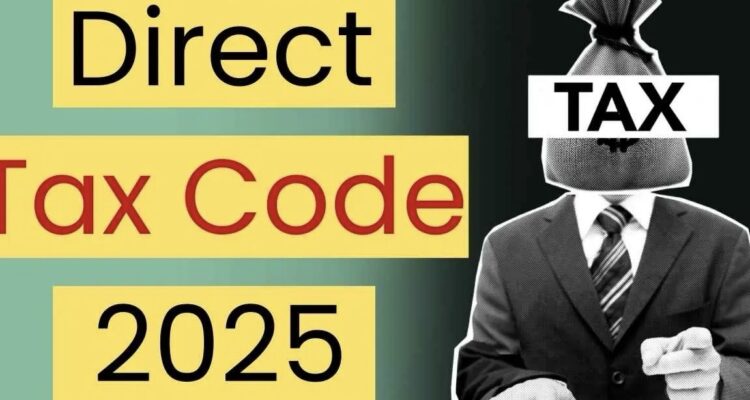The due date for furnishing the return of income under section 139(1) of the Income-tax Act, 1961 in the case of an assessee who is required to furnish a report referred to in section 92E, is November 30.
Direct Tax Code is a proposed legislation set to modernize, simplify and align India’s tax law into a single code by taking in a new era of efficient and transparent taxation.
On 21st August 2024, Finance Minister Nirmala Sitharaman during the 165th year of Income Tax in India introduced the forthcoming Direct Tax Code (DTC).
Its goal is to replace the existing Income Tax Act, 1961, with a more straightforward and transparent system.
As the government prepares to present the Union Budget for 2025 on February 1, the Central Board of Direct Taxes (CBDT) is working on a simplified version of the income tax laws.
CBDT Seeks Public Feedback to Revamp Income-tax Act
The Central Board of Direct Taxes has set up a committee to review the Income-tax Act to simplify the Act, reduce disputes, and enhance tax certainty.
Public suggestions are invited and a dedicated webpage has been launched on the e-filing portal for submitting inputs.
Major Changes in Direct Tax Code
- The DTC 2025 eliminates the concepts of assessment Year and Previous Year. From now, taxpayer will only consider the Financial Year, streamlining tax filing.
- It will provide a simplified Residential Status. DTC removes terms like Resident but Not Ordinarily Resident (RNOR). The new system classifies taxpayers solely as resident or non residents.
- It includes capital gains as part of normal income, which means taxpayers may face higher tax rates on capital gain.
- The five heads of income remain but some categories get renamed. Example – “Income from Salary” becomes “Employment Income” and “Income from Other Sources” becomes “Income from Residuary Sources”.
- A common tax rate for both domestic and foreign companies to simply compliance for multinational business.
- The DTC 2025 eliminates most current deductions and exemptions, making tax filling easier and reducing loopholes.
Evolution of DTC
The concept of DTC has been in development for over a decade:
Year 2009
The First draft of the DTC was proposed to replace the Income Tax Act.
2010
A revised discussion paper was released, followed by the introduction of the Direct Tax Code Bill, 2010 in the Lok Sabha.
2013
The DTC was revised after considering feedback from stakeholders
2017
Six member task force was established to draft new Direct Tax Law.
2024
The announcement of DTC’s forthcoming introduction by Finance Minister Nirmala Sitharaman.
2025
The DTC is expected to be introduced with Budget 2025.
Purpose
- New tax law is believed to bring relief for individuals paying income tax as the slabs will be increased.
- Simpler language will be used for the tax laws by making it easier.
- This law aims to simplify the tax system by gradually removing multiple exemptions and deductions, making it more straightforward and transparent.
- Minimize the use of content and make it shorter, which will be easier to understand.
- A separate litigation unit is also recommended for processing the litigation cases.
- The proposed direct tax code should have fewer sections than income tax to simplify it.
- Easy Compliance by reducing the complexity of tax laws.
Income Tax: Those who have such assets or income but have filed ITR-1 or ITR-4 will have to file revised or belated returns by December 31 to avoid penalties and prosecution as prescribed under the anti-black money law.
Income Tax Department has urged Indian citizens to file the correct ITR form to disclose their foreign assets. If they have submitted the wrong form, revise their returns. The last date for filing revised ITR is December 31, 2024. The department has warned taxpayers that if they do not disclose the income earned from their foreign assets in the ITR, they will be fined up to Rs 10 lakh.

According to the department, two lakh income tax returns (ITRs) have been filed so far during the current assessment year giving details of foreign assets and income. A senior official said that resident Indians are required to inform the Income Tax Department about the shares received from their employers and income earned through employee stock options by filling the foreign assets and foreign source income schedule.
Campaign started
The department has recently launched a compliance-cum-awareness campaign for the assessment year 2024-25 to inform taxpayers about correctly filling the Schedule Foreign Assets (Schedule FA) and income from foreign sources (Schedule FSI) in their Income Tax Returns (ITR).
They will have to fill the revised form
According to Shashi Bhushan Shukla, Commissioner (Investigation) in CBDT, those who have such assets or income but have filed ITR-1 or ITR-4 will have to file revised or belated returns by December 31 to avoid penalty and prosecution prescribed under the anti-black money law.
Which form should taxpayers fill
According to the department, the taxpayer should use ITR-2 or ITR-3 as per his tax profile to correctly reflect the Schedule Foreign Assets (Schedule FA).
What is included in foreign assets
According to the department, all Indian residents are required to declare their foreign assets. This can include real estate, bank accounts, shares, debentures, insurance policies or any other financial assets.



